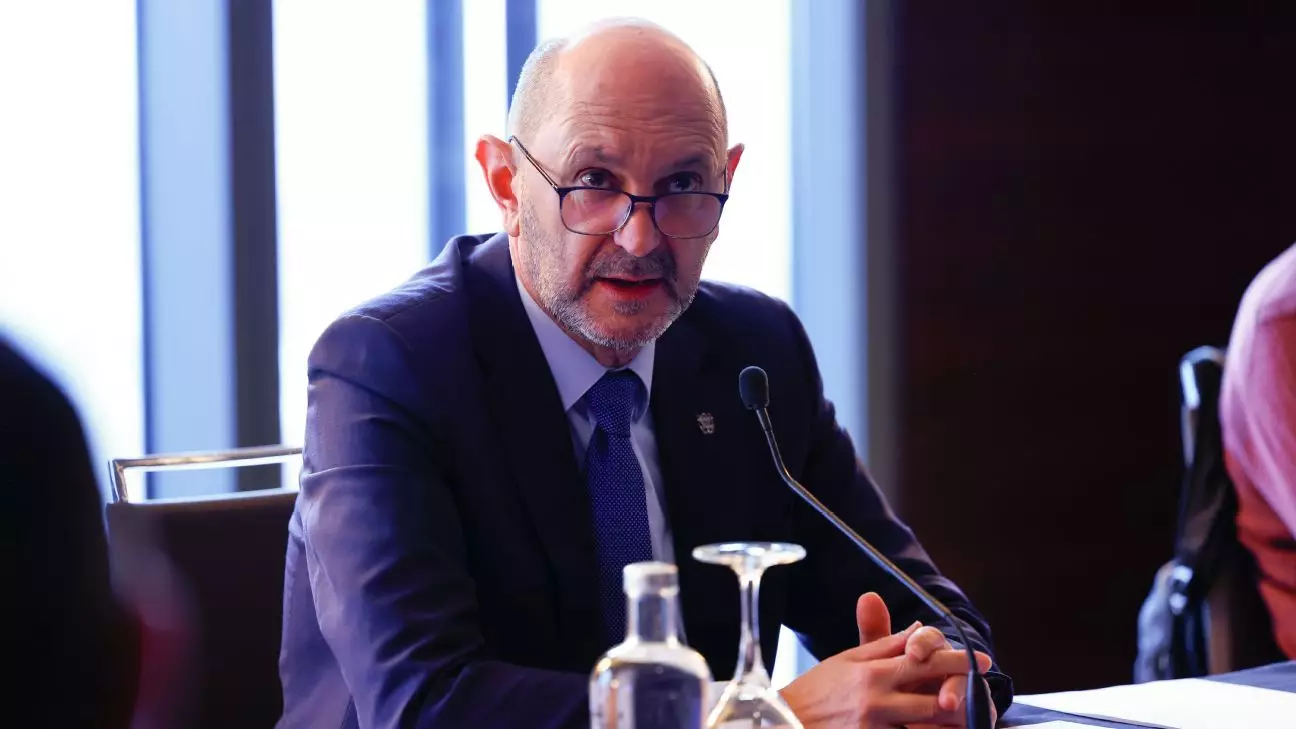The Royal Spanish Football Federation (RFEF) has welcomed Rafael Louzan as its new president, amidst a backdrop of recent turmoil and instability. His election on Monday not only marks a pivotal moment for the organization but also underscores the urgency of navigating a crisis that has plagued Spanish football. Louzan, 57, emerged victorious over his only rival, Salvador Gomar, securing a four-year term that will need to address challenges inherited from his predecessors.
Louzan’s election comes conveniently timed with FIFA’s announcement that Spain will co-host the 2030 World Cup alongside Morocco and Portugal. This joint venture, which also includes a few matches being held in South America, elevates not only the prestige of the Spanish football scene but also heightens the stakes for the new leadership. It is imperative for Louzan to ensure that this period of transition does not hinder Spain’s standing in the international football community, particularly with significant preparations underway for the World Cup.
Despite his extensive experience, which includes representation from the Galician Football Federation and a position on the RFEF’s executive committee since December 2019, Louzan’s arrival is shadowed by controversy. Notably, he has been suspended from holding any public office for seven years due to misconduct during his tenure as president of the Pontevedra Provincial Council. While he has formally appealed this ruling to Spain’s supreme court, it raises questions about the integrity and public perception of the federation’s leadership.
Louzan steps into a role deeply affected by the resignation of former president Luis Rubiales. Rubiales’ unconsented act towards player Jenni Hermoso following Spain’s remarkable victory at the Women’s World Cup in August 2023 led to widespread condemnation. The fallout from this incident is far-reaching, and it necessitated structural changes within the RFEF, which were further intensified following the suspension of Pedro Rocha, Rubiales’ successor. This environment of scrutiny compels Louzan to act decisively to restore trust and stability both internally and externally.
As Louzan embarks on his presidency, he is tasked with not only mending the fractured reputation of the RFEF but also leading vital reforms. The Spanish government has taken an active stance, establishing a special committee to oversee the RFEF in response to the prevailing crisis. Louzan’s effective navigation of these turbulent waters will be crucial to ensuring that Spain meets FIFA’s requirements for the organization and successful hosting of World Cup events.
As the landscape of Spanish football continues to evolve and adapt to recent upheavals, Rafael Louzan’s leadership will ultimately be judged on his ability to unite the federation, respond to public concerns, and uphold the integrity of the sport in Spain. The journey ahead is fraught with challenges, but it also presents an opportunity for revitalization and growth within one of the world’s most passionate football cultures.

Leave a Reply